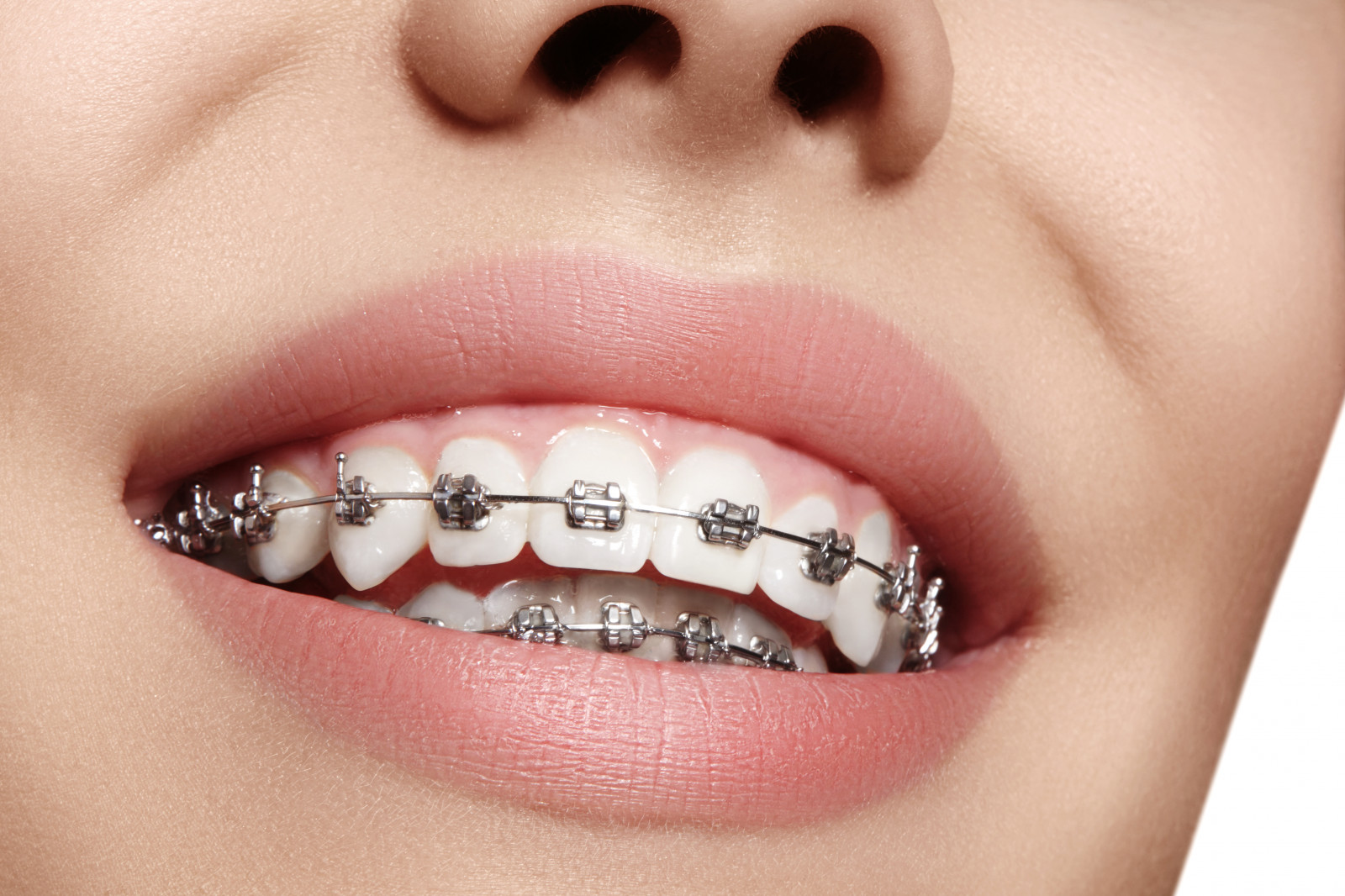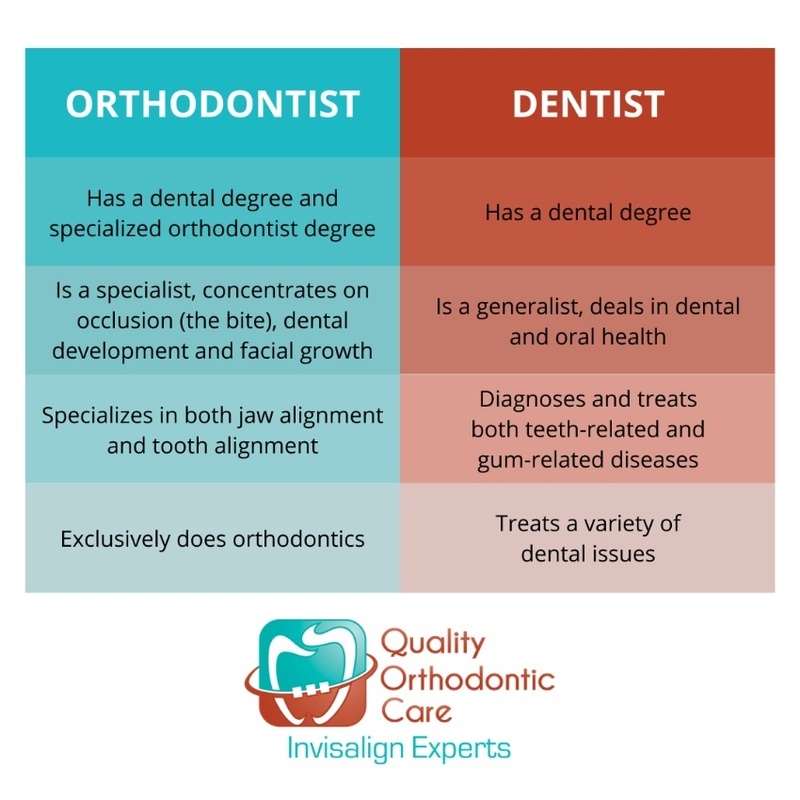Rumored Buzz on Causey Orthodontics
Rumored Buzz on Causey Orthodontics
Blog Article
The Of Causey Orthodontics
Table of ContentsSome Ideas on Causey Orthodontics You Need To KnowCausey Orthodontics for DummiesThe Main Principles Of Causey Orthodontics Causey Orthodontics Fundamentals ExplainedThe Greatest Guide To Causey OrthodonticsThe smart Trick of Causey Orthodontics That Nobody is DiscussingA Biased View of Causey Orthodontics
What is the distinction between a dental expert and an orthodontist? To answer an inquiry that is typically asked, both dental professionals and orthodontists aid patients acquire better dental health, albeit in different ways. It helps to keep in mind that dentistry is a rather broad scientific research with different clinical specializations. All dental experts, consisting of orthodontists, treat the teeth, periodontals, jaw and nerves.
Orthodontists and dental experts both offer dental look after clients. Orthodontists can operate in an oral workplace and provide the very same treatments as other dentists. You can believe of both physicians who deal with periodontal and teeth troubles. The major distinction is that becoming an orthodontist requires a specific specialty in treating the misalignment of the teeth and jaw.
Little Known Questions About Causey Orthodontics.
An orthodontist is a dental professional that has actually gone through training to specialize in the medical diagnosis, avoidance and treatment of irregularities in the jaw and teeth. They can also determine prospective problems in teeth placement that might create when conditions are left without treatment (emergency orthodontist near me).
This consists of all the necessary education and learning to come to be a general dental expert. According to the American Pupil Dental Association (ASDA), it indicates you will need to have either a Medical professional of Medication in Dental Care (DMD) or a Medical Professional of Oral Surgery (DDS). To put it simply, orthodontists need to complete oral school and afterwards acquire an orthodontics specialized education.
Some orthodontists likewise get their masters in craniofacial biology. These programs concentrate on 2 specific locations or self-controls: Dentofacial Orthopedics: This study focuses on leading teeth and jaw growth.
Getting The Causey Orthodontics To Work

 The overall goal of an orthodontist is to enhance a patient's bite. Not everybody is born with straight teeth, and an orthodontist will certainly make certain that patients get uniformly spaced straight teeth.
The overall goal of an orthodontist is to enhance a patient's bite. Not everybody is born with straight teeth, and an orthodontist will certainly make certain that patients get uniformly spaced straight teeth.
The Ultimate Guide To Causey Orthodontics
The American Organization of Orthodontists advises your first check up by age 7. You'll need to see your orthodontist if you have an imbalance in your teeth, likewise understood as malocclusion. Likewise, if you discover irregular bite patterns, a slightly twisted jaw, or when your teeth are jammed, you will likely require orthodontic therapy.
At Advanced Orthodontics, we provide patients with a holistic therapy experience. On top of that, we provide adjustable treatment routines, adaptable payment alternatives and a fun, satisfying experience. Phone call ( 480) 357-4900 today to find out more and schedule an appointment.
An orthodontist is a dental practitioner trained to detect, avoid, and deal with teeth and jaw irregularities. Orthodontists function with people of all ages, from youngsters to adults (https://www.gaiaonline.com/profiles/causeyortho7/46778268/).
Unknown Facts About Causey Orthodontics
Malocclusion, or misaligned teeth, can cause oral problems, consisting of tooth degeneration, gum tissue disease, and tough or painful chewing. But not everybody is birthed with straight teeth. If you have a poor bite or big areas between your teeth, you may intend to seek advice from a dentist specializing in orthodontic care.
(Image Credit: DigitalVision/Getty Images) Orthodontists use repaired and removable dental devices, like braces, retainers, and bands, to change the setting of teeth in your mouth. Orthodontic treatment is for dental problems, consisting of: Uneven teethBite problems, like an overbite or an underbiteCrowded teeth or teeth that are also much apartJaw misalignmentThe goal of orthodontic treatment is to improve your bite.
The Best Guide To Causey Orthodontics

All orthodontists are dental professionals, however not all dental practitioners are orthodontists. Orthodontic residency programs offer intensive, focused guideline for dental specialists. They concentrate on 2 locations: How to properly and safely move teeth Exactly how to correctly assist growth in the teeth, jaw, and faceOnce an orthodontist has finished training, they have the alternative to come to be board licensed.
Malocclusion leads to tooth congestion, an irregular jaw, or irregular bite patterns. Malocclusion is normally treated with: Your orthodontist affixes metal, ceramic, or plastic square bonds to your teeth.
The Greatest Guide To Causey Orthodontics
If you have just minor malocclusion, you might have the ability to utilize clear braces, called aligners, rather than conventional braces. Some individuals need a headgear to help move teeth into line with stress from outside the mouth. After braces or aligners, you'll require to wear a retainer. A retainer is a customized tool that keeps your teeth in position.
Report this page